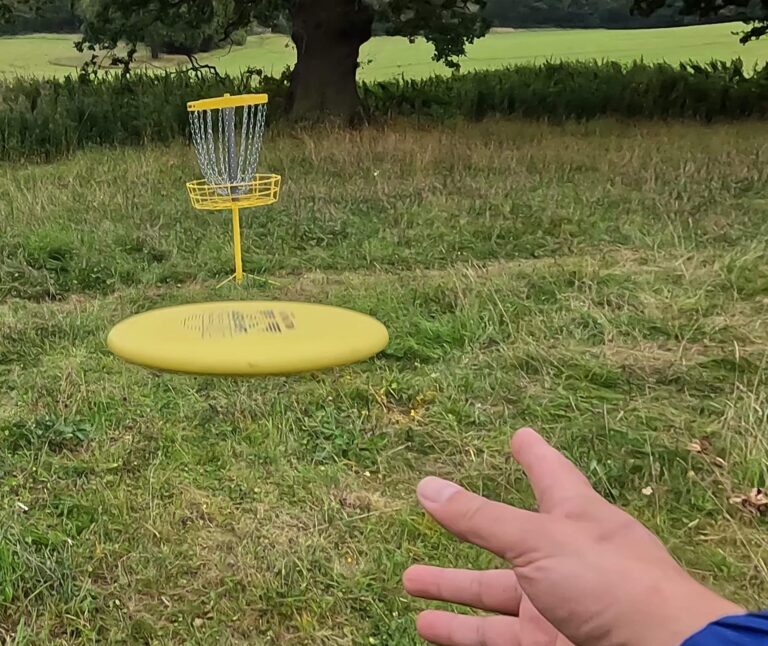How to Choose the Best Disc Golf Putter Weight: Dialing In Your Putting Arsenal

Struggling to sink those pesky putts and elevate your disc golf game? You’re not alone. Countless disc golfers grapple with the best disc golf putter weight for their throwing style and course conditions. This seemingly simple question can have a dramatic impact on your putting accuracy, control, and overall confidence on the green. But fear not, fellow disc golfers! This comprehensive guide will shed light on the fascinating world of putter weight, empowering you to choose the perfect disc to unleash your inner putting champion.
Let’s face it, putting is the heart and soul of disc golf. You can crush drives and navigate fairways like a pro, but if your putter betrays you on the green, all that hard work goes out the window. Over the years, I’ve seen countless players struggle with the question of disc golf putter weight, endlessly tinkering with different discs, chasing that elusive putting nirvana.
But what if I told you the secret to unlocking your putting potential might not be a specific mold or plastic type, but something far simpler: weight? Believe it or not, the weight of your putter can have a dramatic impact on your putting stroke, accuracy, and overall confidence on the course.
In this guide, we’ll delve deep into the world of disc golf putter weights. We’ll explore how weight affects flight characteristics, stability, and putting performance. We’ll dissect the advantages and disadvantages of lighter versus heavier putters, and equip you with the knowledge to choose the best putter weight for disc golf for your game.
Determining the Ideal Weight for Your Disc Golf Putter
Remember that perfect driving flick you nailed last week? Or the buttery smooth approach shot that landed dead center of the circle? Putting isn’t about replicating those powerful throws. It’s about finesse, feel, and a touch as delicate as a butterfly’s wing. That’s where weight comes in.
Here are some key factors to consider when choosing your ideal putter weight in disc golf:
- Control: Lighter putters (typically in the 165-170 gram range) offer a higher degree of control. They’re easier to manipulate with a smooth stroke, allowing you to dial in pinpoint accuracy on short-range putts.
- Stability: Heavier putters (think 173-178 grams) boast superior stability. They fight wind gusts better and resist turning over on longer putts.
- Distance: Heavier putters also pack a little more punch. They can handle a bit more zip on your putt, putting (pun intended) additional distance when needed for those slightly longer circle edge attempts.
- Throwing Style: Do you have a powerful, forceful putt? A lighter putter might be a better fit, allowing for more controlled release. If you favor a softer, finesse-oriented putting stroke, a heavier putter could provide the stability you crave.
Understanding the Importance of Putter Weight in Disc Golf
Weight isn’t just about how the disc feels in your hand. It plays a significant role in how your putter interacts with the environment and ultimately, the basket.
Flight Characteristics
Lighter putters tend to glide further and have a straighter flight path. This can be beneficial for putting with a touch, allowing the disc to settle softly into the basket. Conversely, heavier putters will experience less glide and have a more stable flight pattern, making them better suited for windy conditions or longer putts.
Wind Conditions
Ever watch a perfectly aimed putt get yanked sideways by a rogue wind gust? This is where weight shines. A heavier putter will be less susceptible to wind interference, offering a more predictable flight path. Lighter putters, while offering greater finesse, can be easily blown off course in windy conditions.
Exploring Different Disc Golf Putter Weights
Now that you understand the impact of weight, let’s explore the different putter weight options available and their intended uses:
- Lighter Putters (165-170 grams): Ideal for beginners or players who prioritize control and finesse putting. They’re also a good choice for windy conditions where stability is less of a concern.
- Mid-Weight Putters (171-175 grams): This is the sweet spot for many players. They offer a nice balance between control and stability, making them versatile for a variety of putting styles and course conditions. My main putter is in this range.
- Max-Weight Putters (176-178 grams): These putters are all about stability and power. They’re perfect for experienced players with strong putting strokes, or for those who frequently encounter windy conditions.
Remember: There’s no one-size-fits-all answer when it comes to best weight for disc golf putter.
Optimizing Your Putting Game with the Best Disc Golf Putter Weight
Finding the best disc golf putter weight for your game is an ongoing process of experimentation and personalization. Here are some tips to help you fine-tune your putting experience:
Experiment with Different Putter Weights
The best way to discover your ideal weight is to try them all out! Many disc golf shops have putting baskets where you can test different putters. See how a lighter putter feels in your hand compared to a heavier one. Pay attention to how each weight affects your putting stroke, control, and accuracy.
Adapt to Windy Conditions
Mother Nature can throw some serious curveballs (pun intended) at your putting game. When facing windy conditions, consider switching to a heavier putter. The added stability will help your putt fight off gusts and stay on target.
Refine Your Technique with Different Putter Weights
Lighter putters can be a great tool for developing a smooth, controlled putting stroke. The lighter weight allows you to focus on feel and finesse, perfecting your release point and follow-through. Heavier putters, on the other hand, can help you develop power and consistency on longer putts. Practice with both weights to create a well-rounded putting arsenal.
Are Heavier Putters Always Better?
There’s a common misconception that heavier putters are inherently superior. While they offer advantages in stability and power, they’re not a magic bullet. Here’s why:
- Strength and Throwing Style: Not everyone has a powerful throwing arm. If you have a more finesse-oriented putting stroke, a lighter putter might be a better fit. It will allow for smoother release and better control over shorter distances.
- Feel and Comfort: Ultimately, the putter that feels most comfortable in your hand is the one you’ll putt your best with. Don’t force yourself to use a heavier putter if it feels awkward or throws off your putting mechanics.
Frequently Asked Questions About Disc Golf Putter Weight
Here are some common questions that arise when discussing disc golf putter weight:
There’s no single “optimal” weight. It depends on your individual throwing style, skill level, and course conditions. However, most players find a sweet spot between 171-175 grams (mid-weight putters).
Lighter putters offer more control for precise putts, while heavier putters can be affected by wind gusts and may require slight adjustments in your throwing technique.
Selecting the Right Disc Golf Putter Weight
By understanding the impact of disc golf putter weight on your game, you can make an informed decision when choosing your next putting disc. Here’s a quick recap:
Exploring the Advantages of Lighter Putter Weights
- Increased control and finesse for short-range putts
- Easier adjustment to changing wind conditions
Analyzing the Benefits of Heavier Putter Weights
- Enhanced stability and resistance to wind interference
- Greater potential for distance and power on longer putts
Remember: There’s no right or wrong answer. Experiment with different weights, find what feels comfortable, and refine your putting stroke accordingly. With dedication and practice, you can unlock the putting potential that’s been hiding within your favorite discs all along.






















